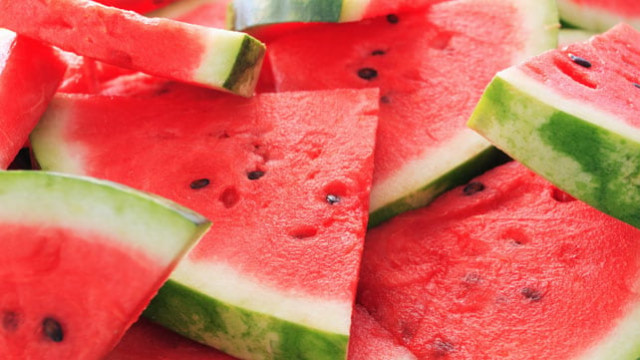4 reasons why you must include watermelon seeds in your daily diet
Do you know they are an incredible source of protein?

PHOTO:FILE
But did you know that watermelon seeds can make for great snack if you dry or roast them? Also, they’ve got several important nutritional advantages. As compiled from Livestrong.com, here are just some of them.
Protein
As it turns out, watermelon seeds are very high in protein, with just one cup of dried seeds containing 30.6g – 61% of the daily recommended value! This protein in watermelon seeds comprises of several different amino acids, one of which is arginine.
While the body produces some arginine, MedlinePlus states that many health conditions may benefit from additional arginine. Some of the health benefits of the amino acid include regulating blood pressure and treating coronary heart diseases. There are also several other amino acids that make up the protein in watermelon seeds, including tryptophan, glutamic acid, and lysine.
B Vitamins
Proteins aren’t the only elements you’ll get by consuming watermelon seeds. They are also loaded with several B vitamins. The American Cancer Society reports that B vitamins are necessary for converting food into energy and other important bodily functions
Perhaps the most prevalent of all the B vitamins found in watermelon seeds is niacin, with one cup of dried seeds containing 3.8mg, which is 19% of the daily recommended value. Niacin is important for maintaining the nervous system, digestive system and skin health. Other B vitamins in watermelon seeds include folate, thiamin, riboflavin, vitamin B6 and pantothenic acid.
Fruit fuelled evolution of a bigger brain: study
Minerals
Minerals are a plenty in watermelon seeds. Magnesium is the most abundant mineral herein, weighing in with 556mg, or 139% of the recommended daily value, in just one cup of dried seeds.
According to the National Institutes of Health, magnesium helps regulate blood pressure and the metabolism of carbohydrates, which has a beneficial effect on blood sugar as well. Other important minerals in watermelon seeds are phosphorous, iron, potassium, sodium, copper, manganese and zinc.
Fats
This may perhaps be the most surprising fact about watermelon seeds: the amount of fat they contain. In only one cup of dried seeds, there are 51g of fat, with 11 of those being saturated fats. The other fats are monounsaturated fats, polyunsaturated fats, and omega-6 fatty acids.
The American Heart Association reports that monounsaturated and polyunsaturated fats help in the reduction of blood cholesterol, while omega-6 fatty acids can help bring high blood pressure into control.
However, there is a down side to consuming too much watermelon seeds: the calorie count. They might look tiny and not filling enough but you'll take in just over 600 calories if you eat the whole cup.
Now that summer’s here, we suggest you go and load up on as many watermelons as you can!
Have something to add to the story? Share it in the comments below.



















COMMENTS
Comments are moderated and generally will be posted if they are on-topic and not abusive.
For more information, please see our Comments FAQ